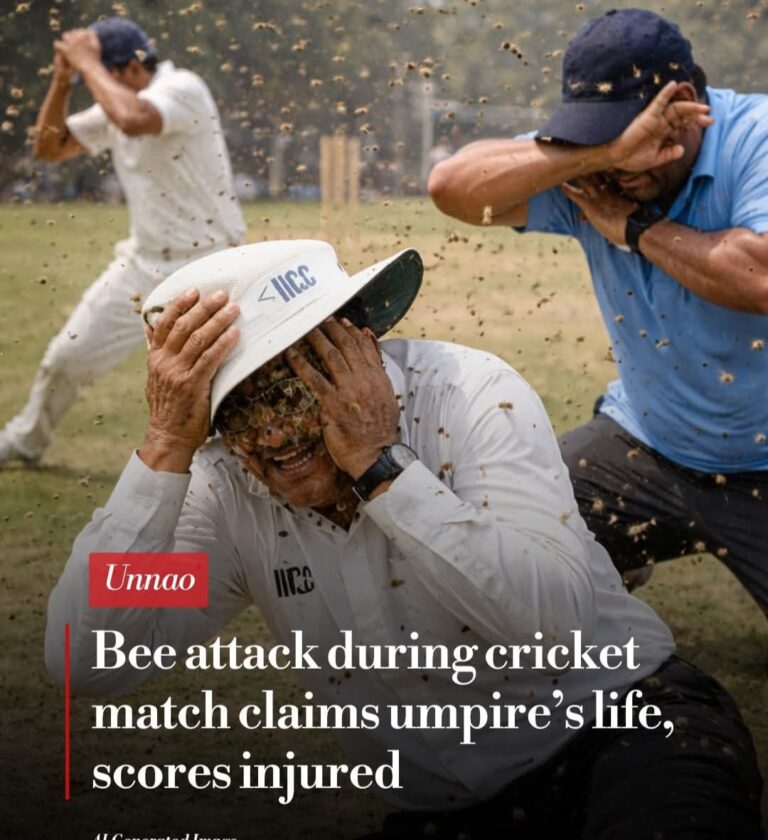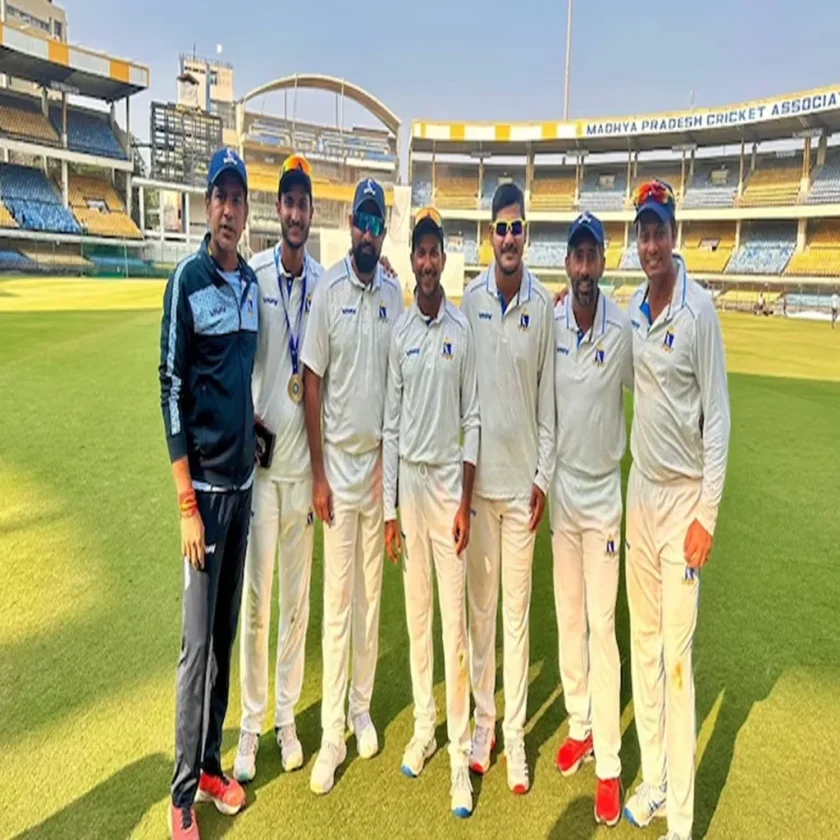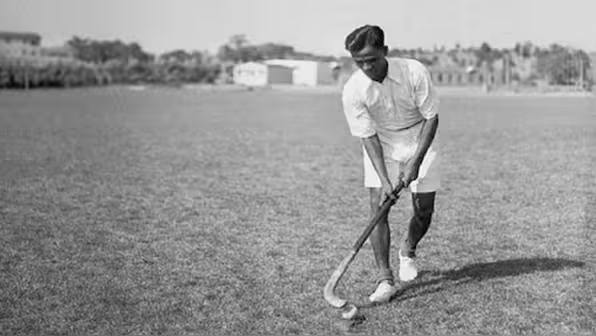Mumbai: Parth Jindal, Founder, JSW Sports, spoke at an event ‘An Olympic Dream: Sport in India,’ a panel discussion hosted by the JSW Group, Asia Society India Centre, and the Consulate General of France in Mumbai, “I believe the way forward for Indian sports is a robust public-private partnership. The reach and funding the government provides are unparalleled, but the private sector adds essential elements like sports science, nutrition, and technology, enhancing the government’s efforts. Over the past decade, this collaboration has flourished. Initiatives like the Target Olympic Podium Scheme (TOPS), the Mission Olympic Cell, and Khelo India are excellent examples of this synergy, developed in consultation with the private sector.
“Despite this progress, the private sector primarily operates within existing government infrastructure, except for a few notable ventures like the Inspire Institute of Sport. To truly elevate Indian sports, we need at least 10 such centres across the country—ideally one in every state. The government is already encouraging private entities to manage these centres, but more involvement is needed.
“There are two main challenges in Indian sports: insufficient private sector participation and persistent issues within sports federations, which still suffer from political interference. However, improvements are visible each year. With the Paris Olympics approaching, the collaboration between the government and the private sector is more concentrated and symbiotic than ever, and I am optimistic about the results.”
“One crucial aspect of our sports journey has been the emergence of heroes who inspire the next generation. From the three heroes of 2008, we saw six more in 2012, followed by two in 2016. In Tokyo, our hockey team and six other medallists stood out, along with the exceptional Neeraj Chopra in track and field. Each hero, like Vijender Singh in boxing or Sakshi Malik in wrestling, ignites dreams and possibilities in their respective sports. Neeraj Chopra’s achievements in javelin, a sport previously deemed beyond our genetic capabilities, have paved the way for future champions. Now, we have three Indian men’s javelin throwers heading to Paris, a testament to our evolving athletic prowess.”
Parth Jindal, Founder, JSW Sports, further elaborated about Neeraj Chopra, “Neeraj Chopra’s story is a remarkable testament to talent identification and resilience. We discovered Neeraj in 2015 through our sports excellence program, and in 2016, he shattered the World Junior Championship record and won a gold medal in Poland with an 86.48-meter throw. Had he achieved that throw at the Rio Olympics, he would have secured a bronze medal. His journey only became more compelling from there.
“The Sports Authority of India (SAI) brought in Uwe Hohn, the only man to throw over 100 meters, as Neeraj’s coach, leading to a significant change in his technique. Unfortunately, this change resulted in a dislocated elbow in 2019, after Neeraj had won gold at the 2018 Asian Games. Many feared this injury would end his career, especially with the Tokyo Olympics looming in 2020. However, the postponement of the Olympics due to COVID-19 gave Neeraj a crucial year to recover.
“During the pandemic, with Indian athletes struggling to obtain visas for overseas training, we reached out to the External Affairs Minister, Mr. S. Jaishankar, advocating for urgent visa approvals for Neeraj and wrestler Bajrang Punia. The government swiftly responded, granting them visas—Neeraj received a Schengen visa for France, and Bajrang went to Russia. This enabled them to participate in key tournaments leading up to Tokyo.
“When asked why we prioritized these two athletes, my response was rooted in our experience: after nine years in sports development, we believed they were India’s best bets to win medals. As it turned out, both Neeraj and Bajrang proved us right by winning medals at the Tokyo Olympics.”
Sakshi Malik, an Olympics bronze medallist, spoke at an event ‘An Olympic Dream: Sport in India,’ a panel discussion hosted by the JSW Group, Asia Society India Centre, and the Consulate General of France in Mumbai, “An Olympic dream is not just an athlete’s dream; it’s the dream of an entire family. Winning an Olympic medal transforms not only the life of the athlete but also the lives of their family, society, and village. After my medal, significant changes occurred. The Chhotu Ram Stadium in Rohtak, where I trained, went from having a tin roof to becoming an AC hall. A stadium was even built in my village and named after me. An Olympic medal creates numerous opportunities, especially for children, allowing them to train in better facilities.
“The craze for wrestling in Haryana has surged. Everywhere you go, there’s a stadium every ten minutes, and you’ll find girls training in each one. The old mindset that girls couldn’t wrestle has changed dramatically. The misconceptions that girls are impure and shouldn’t participate in wrestling have been debunked. Now, girls are proving that they too can excel in wrestling.
“There was a time when people believed that girls couldn’t wrestle, but today, this has changed. For the first time, five girls are going to the Olympics for wrestling while only one boy is going. Girls, who were once suppressed, are now boldly stepping forward and excelling in wrestling.

“After my medal win, no one enters wrestling merely thinking about securing a job or a benefit. They now start with the goal of winning an Olympic medal. This shift in mindset is incredibly inspiring.”
Indian gymnast Dipa Karmakar spoke at an event ‘An Olympic Dream: Sport in India,’ a panel discussion hosted by the JSW Group, Asia Society India Centre, and the Consulate General of France in Mumbai. She said, “As an athlete, the fourth place can be the worst place to be in. Not just for me, any athlete who finishes in fourth place can never sleep. And whenever I have seen the Olympics, the people who come in fourth place always cry. Because you can’t change it, the fourth place is always going to be the fourth place, and the ones who win a medal will always remain as medallists. So, the best thing to do is to think about what better we can do from here on. Only the people who finish in fourth place can understand its pain the most.”
Talking about the culture of gymnastics in Tripura state, she said, “After the 2016 Rio Olympics, a lot of things have changed in Tripura. People had a mindset that they can’t go into gymnastics. And in Tripura, there were a lot of changes. For example, the infrastructure, the vault that you see, you need a lot of foam pits, which are very important. They weren’t there before. After the 2016 Olympics, they built the foam pit there, and a lot of equipment came. And the children’s interest level increased a lot. Earlier, there were very few centres, but now everywhere, whether it’s government or private, the centres have increased a lot. And everyone’s mindset is that we also want to go to the Olympics, which wasn’t there before. So according to me, after the 2016 Rio Olympics, a lot of people’s mindsets changed, which was very important.”
While talking about the need for funding, support, and resources, she said, “We see that until we are successful, we don’t get anything as athletes. And gymnastics was such a sport. Everybody used to think that girls can’t do anything first. And people didn’t know about gymnastics. Until you are successful, nobody will come to support you. But now, when we see people like JSW, I am very thankful to them because they are supporting us at the grassroots level. If this was done earlier, our Olympic medal count would have been in double digits, which is going to happen in the upcoming Paris Olympics. And that’s why I wish them all the best. Perform well and keep moving forward, all the athletes who are going to Paris, because the next generation is going to get inspired by them.”
Priya Mohan, Indian athlete, spoke at an event ‘An Olympic Dream: Sport in India,’ a panel discussion hosted by the JSW Group, Asia Society India Centre, and the Consulate General of France in Mumbai, “I believe that every athlete has their own timeline for success. Most athletes peak around 24 or 25 years old. Seeing Alison Phillips compete at 35 is very motivating for me. It reminds me that setbacks can make us stronger and prepare us for greater achievements ahead. I didn’t train for almost two months due to an injury, but when I returned to the Inspire Institute of Sport (IIS), I recovered quickly and was back on track within three months. That progress was encouraging.
“However, when I increased the intensity of my training, I faced complications with my lungs not expanding fully. Thanks to the support from IIS, these issues were addressed. The time I lost was a learning experience that made me stronger. I interacted with many athletes during this period, which changed my mindset. I feel I haven’t lost anything significant; instead, I’ve gained a new perspective.
“The next four years are incredibly important, and every day counts. You have to make time for what you want to achieve. I’m also pursuing a degree in Sports Management, which has further shaped my outlook.
“Neeraj Chopra’s gold medal win was a game-changer for us. We were at a junior camp, training for the World Junior Championship, when we witnessed his victory. That Olympic gold, along with India’s record haul of three medals – one bronze in mixed relay and two silver in walking and long jump – transformed our mindset. It showed us that achieving such success is possible for us too.”









